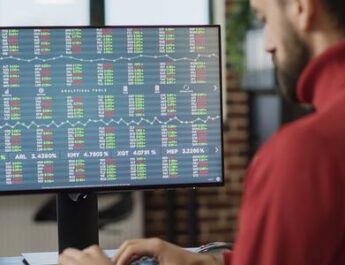The US Federal Reserve’s Michael Barr Set to Resign as Vice Chair for Supervision
A New Development in Operation Chokepoint 2.0?
Michael Barr, the current vice chair for supervision at the US Federal Reserve, is set to resign from his position effective February 28 or earlier if a successor is appointed. This news comes amidst growing concerns about the federal government’s efforts to debank crypto companies through "Operation Chokepoint 2.0".
Background on Operation Chokepoint 2.0
For those unfamiliar with this term, Operation Chokepoint 2.0 refers to a purported effort by the US government to restrict the financial services available to crypto companies. This move has been met with criticism from industry executives and lawmakers who argue that it is an attempt to stifle innovation and suppress entire industries.
Michael Barr’s Resignation
In a January 6 letter addressed to President Joe Biden, Barr announced his intention to resign as vice chair for supervision at the Federal Reserve. He will continue to serve as a member of the Federal Reserve Board of Governors until his resignation takes effect. This news has been met with mixed reactions from industry executives and lawmakers.
Industry Executives React
Some crypto industry executives have viewed Barr’s resignation as an opportunity to push back against Operation Chokepoint 2.0. Senator Cynthia Lummis, a vocal critic of the federal government’s efforts to debank crypto companies, said in a January 6 post on X: "Michael Barr has completely failed to fulfill his duties as Vice Chair for Supervision at every turn, enabling Operation Chokepoint 2.0 and illegally increasing his power at the cost of Wyoming’s digital asset industry."
Caitlin Long’s Comments
Custodia Bank CEO Caitlin Long referred to Barr as "THE FED’S DEBANKER-IN-CHIEF" in a January 6 post on X, highlighting his role in promoting Operation Chokepoint 2.0.
Nic Carter’s Take
Blockchain-focused Castle Island Ventures partner Nic Carter observed that over half of the officials linked to Operation Chokepoint 2.0 have announced their resignations, stepped down or been defeated in elections as President Joe Biden prepares to transition power to the incoming Donald Trump administration.
- Federal Deposit Insurance Corporation (FDIC) chair Martin Gruenberg
- Securities and Exchange Commission’s chair Gary Gensler
- Senator Sherrod Brown
However, some officials remain on Carter’s list, including:
- Massachusetts Senator Elizabeth Warren
- Federal Reserve board member Michael Gibson
- Nellie Lang, Under Secretary of the Treasury for Domestic Finance
Michael Barr’s Record
While some industry executives have criticized Barr’s role in promoting Operation Chokepoint 2.0, he has also pushed for responsible stablecoin regulation – a move that most industry pundits agree is necessary to advance crypto adoption in the US.
He also supervised the Federal Reserve’s research into central bank digital currencies (CBDCs), which has been a topic of interest for many in the crypto space.
Coinbase’s Investigation
A recent court order allowed crypto exchange Coinbase to obtain unredacted files from the FDIC to investigate its role in Operation Chokepoint 2.0.
- [There was a] coordinated effort to stop a wide variety of crypto activity — everything from basic BTC transactions to more complex offerings," Coinbase’s chief legal officer Paul Grewal explained after reviewing the filings.
John Deaton’s Call for Investigation
Former US prosecutor and cryptocurrency advocate John Deaton has offered to lead an investigation into Operation Chokepoint 2.0 for the incoming Trump administration.
- If these actions go unchallenged, it creates a dangerous precedent where regulatory bodies can quietly suppress entire industries they disfavor, stifling innovation, competition, and economic opportunity," Deaton said in a January 4 X post.
Conclusion
The resignation of Michael Barr marks another development in the ongoing saga surrounding Operation Chokepoint 2.0. As the crypto industry continues to evolve, it is essential that regulatory bodies prioritize responsible regulation over stifle innovation.
- How can we create an environment where innovation and economic opportunity thrive?
- What are the potential consequences of allowing regulatory bodies to suppress entire industries?
These questions and more will continue to be at the forefront of the conversation as the crypto industry continues to grow and evolve.




